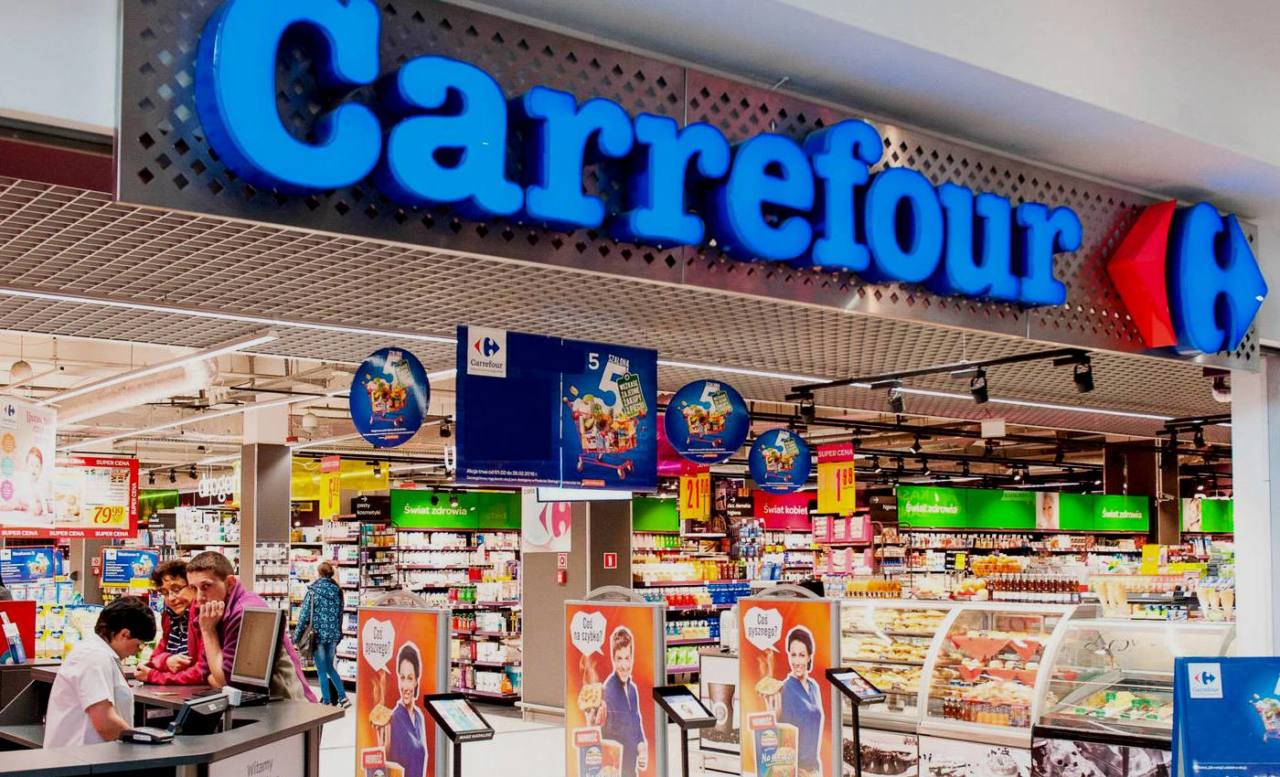Despite the French company announcing it will be opening its first branch in the illegally occupied West Bank, where Israel has been accused of practising apartheid; the Belgium national team sponsor is reportedly not taking its allocated tickets for the World Cup.
In a statement issued late on Friday, French multinational company Carrefour responded to media reports that it was boycotting the FIFA World Cup in Qatar.
“This fake news is groundless. Carrefour Group and its subsidiaries are not engaged in any boycott action of the World Cup in Qatar. As Carrefour Qatar, we reiterate the same position with full commitment to, and support of the World Cup in Qatar, as well as remaining strongly committed to operating in Qatar, where we look forward to serving our valued customers and guests of the upcoming FIFA World Cup Qatar 2022.”
Despite the statement that the company will not be boycotting the World Cup, Carrefour failed to deny reports that the group will not be taking up its sponsorship tickets on the grounds of ‘human rights concerns’ as was previously reported by Doha News and other media outlets.
The statement issued on Friday follows reports that the French retailer and a number of other Belgian national team sponsors said that they will boycott the World Cup in Qatar.
It has been reported that Carrefour, along with ING Belgium, Cote d’Or, GLS and Jupiler will not use their allocated tickets that they received as sponsors of the Belgium national team.
All of the boycotting companies cited alleged ‘human rights concerns’ in the Gulf nation as the reason behind their decision.
Those concerns however have not prevented Carrefour operating in Qatar for over two decades during which it opened 10 branches, and currently employs more than 2,000 people.
In a statement, Jupiler stated that “more can be done” to support human rights in Qatar. GLS also stated that they “believe that this World Cup should not be used for commercial purposes.”
As for ING, their logo will remain on the team’s training jerseys, boarding, and in the backdrop at press conferences.
Jupiler’s statement is noteworthy considering that AB InBev, the world’s largest brewer, produces Jupiler and through Budweiser, is a sponsor of the FIFA World Cup in Qatar.
Although the American beer company has not criticised Qatar’s human rights condition, it has previously called on FIFA to investigate corruption claims surrounding Qatar’s disputed 2022 World Cup bid.
Doha News has contacted the Embassy of Belgium and the Royal Belgian Football Association for comment but is still awaiting a response.
Following Dutch sponsors
ING previously said last week that it will not acquire tickets for the Dutch national team’s World Cup matches from the Royal Dutch Football Association (KNVB) and will not run any advertising activities throughout the event. ING is the KNVB’s main sponsor.
Other KNVB financiers, such as KPN, Albert Heijn, Bitvavo, and the Dutch Lottery, are also choosing to waive the option to join the Dutch national team in the World Cup at the end of this year.
ING has also stated that it will not use World Cup imagery in its advertising. “We are focusing on the European Women’s Football Championship in England,” said a Spokesperson for ING.
Hypocrisy: Carrefour expands to Israel
Carrefour signed a memorandum of understanding to franchise the chain with Electra Consumer Products in Israel earlier this year.
The retail giant has about 13,900 stores worldwide, but none in Israel at the moment.
Their stores will replace Israeli retailers in illegal colonies such as Ariel and Maaleh Adumim, which are located within Israeli settlements in the occupied West Bank.
The supermarket chain wants to operate its first franchises in occupied Palestine by the end of 2022 as part of the cooperation.
Israel has killed at least 17 Palestinians in the occupied West Bank since the start of the holy month of Ramadan.
Qatar’s labour reforms
Qatar has implemented important labour changes over the years, including the first non-discriminatory minimum wage in the region in 2021.
Employers must pay food and housing allowances of at least 300 QAR and 500 QAR, respectively, in addition to a minimum monthly basic wage of 1,000 QAR, according to the new rule. Those who break the new law might face a year in prison and a fine of 10,000 QAR.
In addition, in 2020, the Gulf nation was the first in the region to end the notorious ‘Kafala’, or sponsorship, system.
Last year, a new website for worker complaints was introduced, allowing employees to report public labour law breaches.
Rights groups however continue to point to the need for greater steps by authorities to ensure the implementation of the reformed laws.







